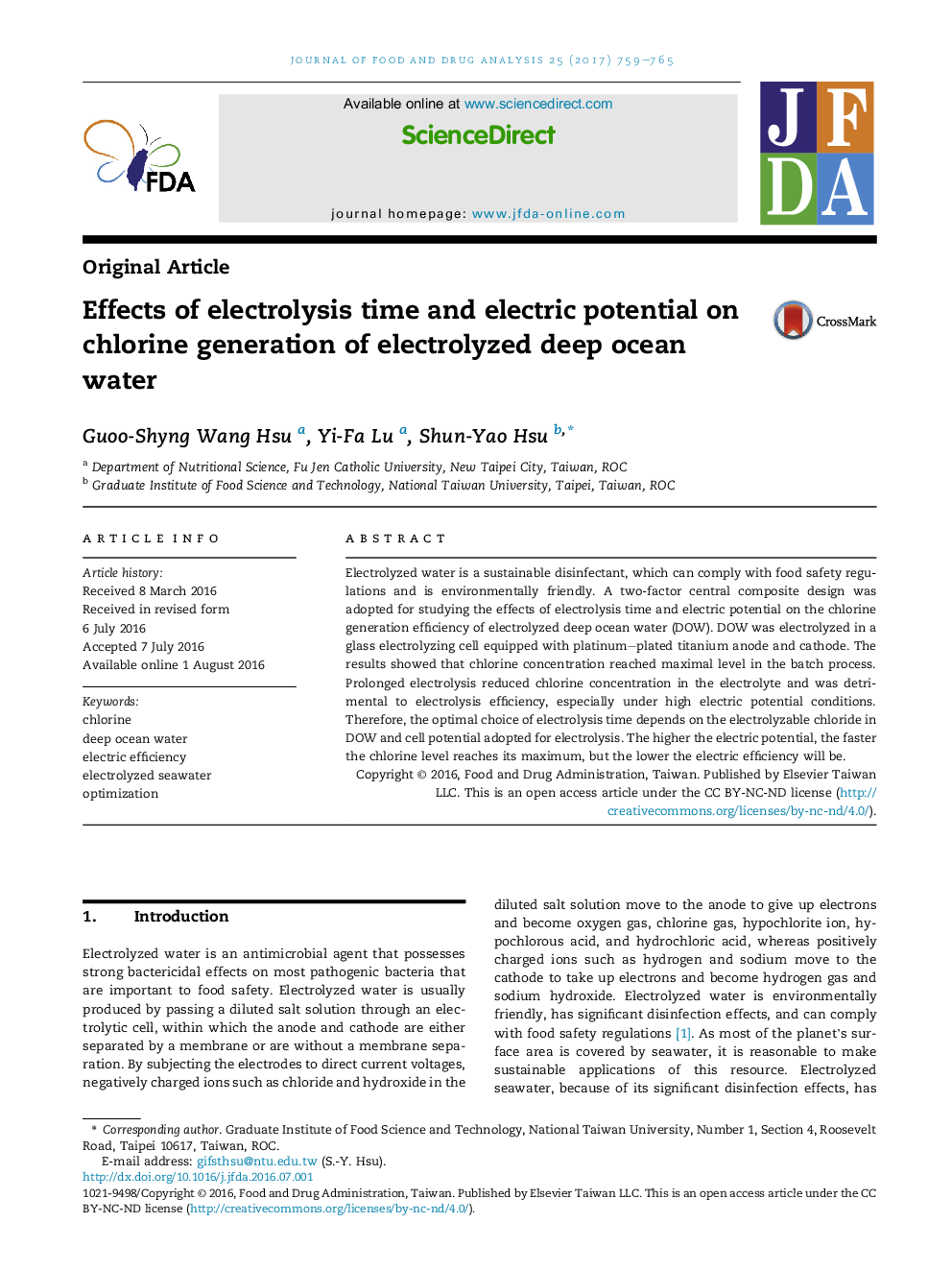| Article ID | Journal | Published Year | Pages | File Type |
|---|---|---|---|---|
| 5550988 | Journal of Food and Drug Analysis | 2017 | 7 Pages |
Electrolyzed water is a sustainable disinfectant, which can comply with food safety regulations and is environmentally friendly. A two-factor central composite design was adopted for studying the effects of electrolysis time and electric potential on the chlorine generation efficiency of electrolyzed deep ocean water (DOW). DOW was electrolyzed in a glass electrolyzing cell equipped with platinum-plated titanium anode and cathode. The results showed that chlorine concentration reached maximal level in the batch process. Prolonged electrolysis reduced chlorine concentration in the electrolyte and was detrimental to electrolysis efficiency, especially under high electric potential conditions. Therefore, the optimal choice of electrolysis time depends on the electrolyzable chloride in DOW and cell potential adopted for electrolysis. The higher the electric potential, the faster the chlorine level reaches its maximum, but the lower the electric efficiency will be.
Graphical abstractDownload high-res image (397KB)Download full-size image
